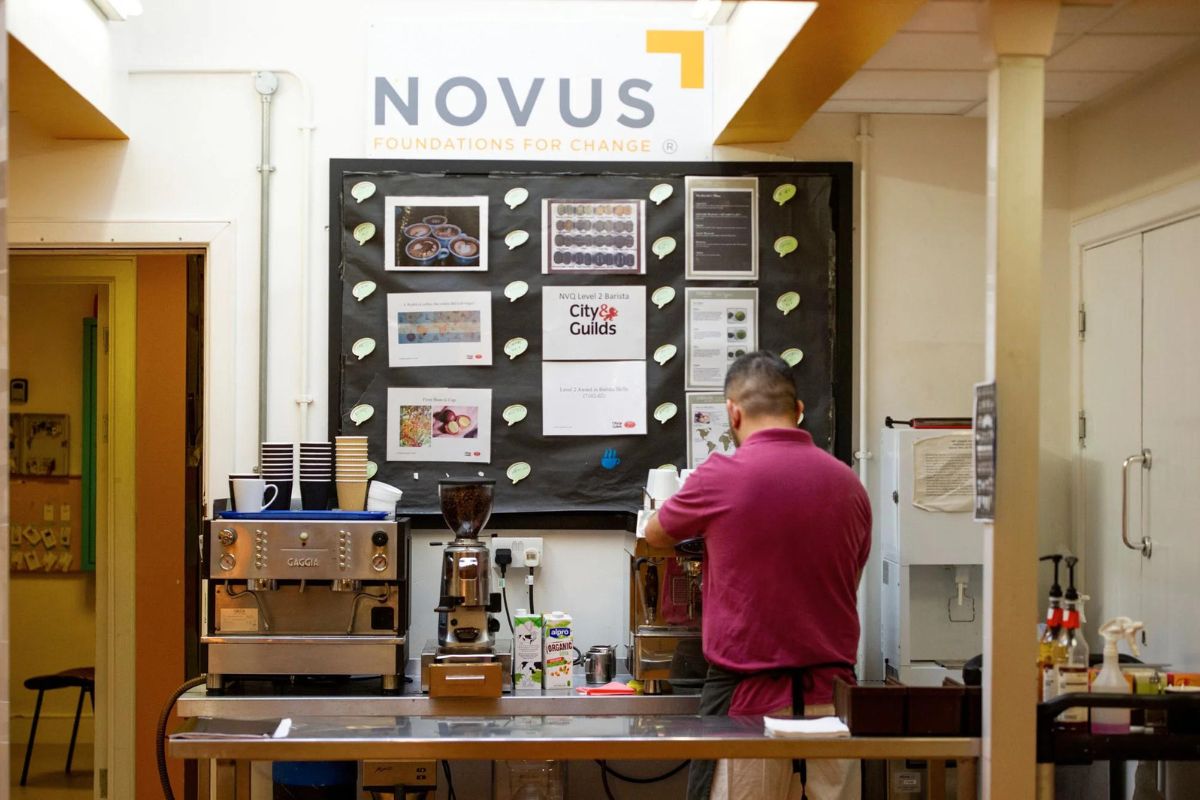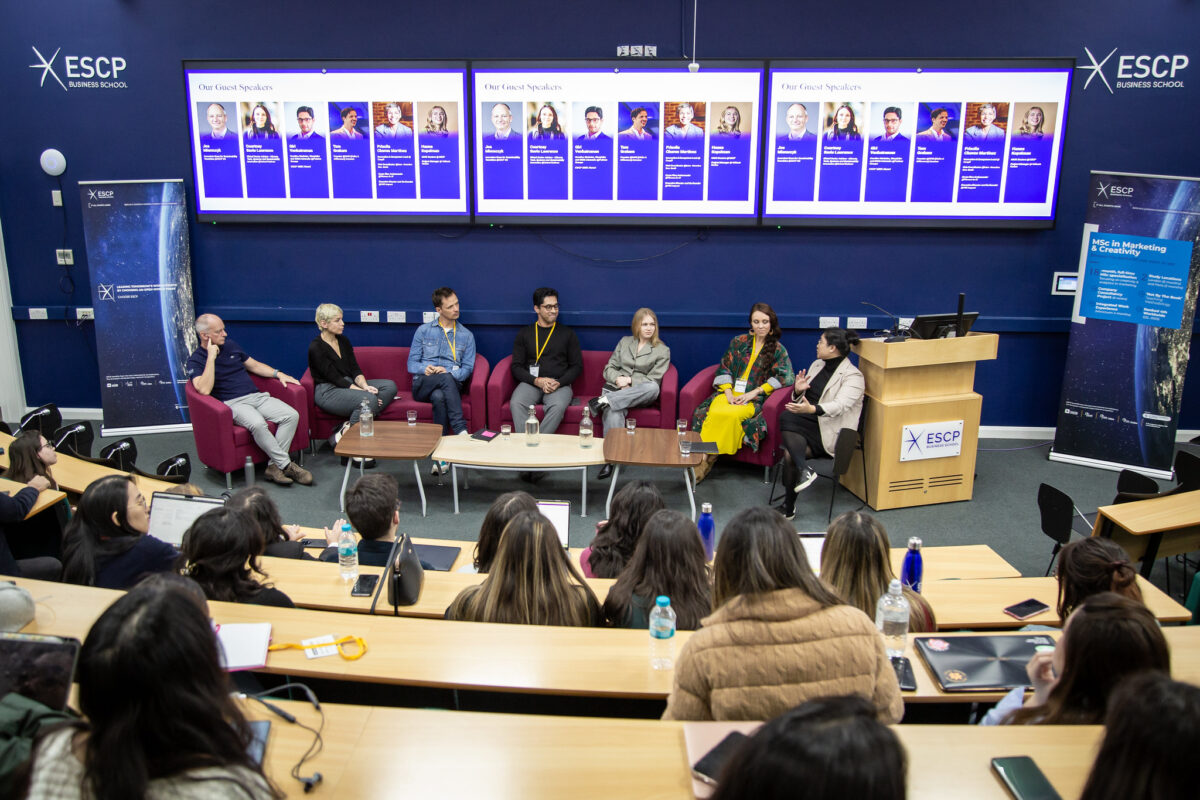Entrepreneurship shouldn’t still be a man’s world – #Mentoring can change this

The importance of a more diverse range of female role models and mentorship to boost youth entrepreneurship.
It’s not all doom and gloom for business in Britain. With news hitting the headlines last week that the economy shrank for the first time since late 2012 and a cliff edge Brexit approaching, the much derided Generation Z Generation Z might just be the ones to bring a much needed boost to the economy.
Forget the stereotype of the snowflakey, smartphone-obsessed Snapchatter – new research finds young Brits could be the most entrepreneurial generation in recent history.
The recent report from think tank The Entrepreneurs Network and Octopus Group concluded that 14-25 year olds in the UK are “entrepreneurially ambitious”.
HALF OF YOUNG BRITS WANT TO START A BUSINESS, BUT MANY CANNOT NAME AN ENTREPRENEUR: A report from The Entrepreneurs Network and Octopus Group finds 14-25 year olds are entrepreneurially ambitious, though fear of failure and lack of role models present… https://t.co/vC8irrzgXA pic.twitter.com/lvsP9RttZ6
— FE News (@FENews) August 12, 2019
51% of the 1,549 young people surveyed have thought about starting or have already started their own business, and a further 35% are open to the idea of entrepreneurship. In fact, Gen Z is so pro-entrepreneurship that only 15% of young people rule out starting up their own business.
But if we want to turn this entrepreneurial desire into reality we need to find more inspiring role models.
Most young people could not name a single famous entrepreneur who inspires them, and the 57% who could overwhelmingly listed men: Lord Sugar, Richard Branson, Elon Musk, Bill Gates and Steve Jobs were the most commonly named.
Only 15% of the famous entrepreneurs named were women, with Kylie Jenner leading the way. Given this enormous lack of female role models, it’s hardly surprising that young men are almost twice as likely to have started a business than women (11% vs 6%).
In a society that largely values ambition, resourcefulness and wealth in men, and beauty, modesty and meekness in women, we can hardly be surprised that female entrepreneurs struggle so much to make a name for themselves.
The male entrepreneurs named are operating in a different stratosphere to the female ones, inventing driverless cars and trying to colonise Mars. In contrast, celebrated female entrepreneurs are largely limited to the appearance-focused industries of beauty, fashion and fitness – ‘feminine’ industries where their own looks still matter most.
The USP of Tesla and Microsoft is that the companies are pioneers in a new field. The USP of Kylie’s Cosmetics is Kylie herself.
Female inventors exist – we just don’t hear enough about them!
If the world of tech and innovation seems to still a man’s world, we need to talk more about women such as Cher Wang, who created the HTC smartphone, or Maria Telkes, who invented the first 100 percent solar powered house, or Rosalind Franklin, who discovered the DNA double helix. Female inventors exist – we just don’t hear enough about them.
Gender stereotypes limit innovation and entrepreneurship, discouraging young people from going into the field that they are best suited to. And it’s not just young women who are missing out from this entrepreneurship gap that arise from systemic and often unconscious gender biases.
The Rose Review of Female Entrepreneurship found that closing the entrepreneurship gap between men and women could add an additional £250 billion in Gross Value Add to the UK economy, equivalent to four years of economic growth.
But hosting The Apprentice or having 143 million followers on Instagram is not the only way to inspire Gen Z.
The report highlights the hugely positive impact of personally knowing entrepreneurs, finding “exposure to entrepreneurship is a key driver of entrepreneurial intention”.
Nearly seven in ten (68%) respondents said that having a family member or a friend as an entrepreneur has made them more likely to consider starting a business. (Luckily, parents seem happy to help, with an outstanding 97% saying they would be supportive if their under 18-year-old were looking to found a business in the future.)
Role models are not a trivial reflection of society: they have a real impact on entrepreneurship for the next generation. The report cites a recent study by Chetty et al. on exposure to innovation, which finds that while women are more likely to innovate if they grow up surrounded by female inventors, growing up in an area full of male inventors has no impact on men’s propensity to invent (this is probably because men do not lack male inventor role models in the first place).
The study predicts that if “girls were as exposed to female inventors as boys are to male inventors, the gender gap in innovation would fall by half.”
Of course, lots of things shape the future of entrepreneurship. Education, taxes, visas and red tape, not to mention the economy, all are deciding factors.
But what is clear is that seeing other people who have succeeded in the uncertain world of startups – celebrities or not – massively encourages future innovation. And who knows, if we really have already reached peak influencer, young people will be increasingly moving towards people they actually know for entrepreneurial inspiration.
Amelia Stewart, Research Associate, The Entrepreneurs Network












Responses